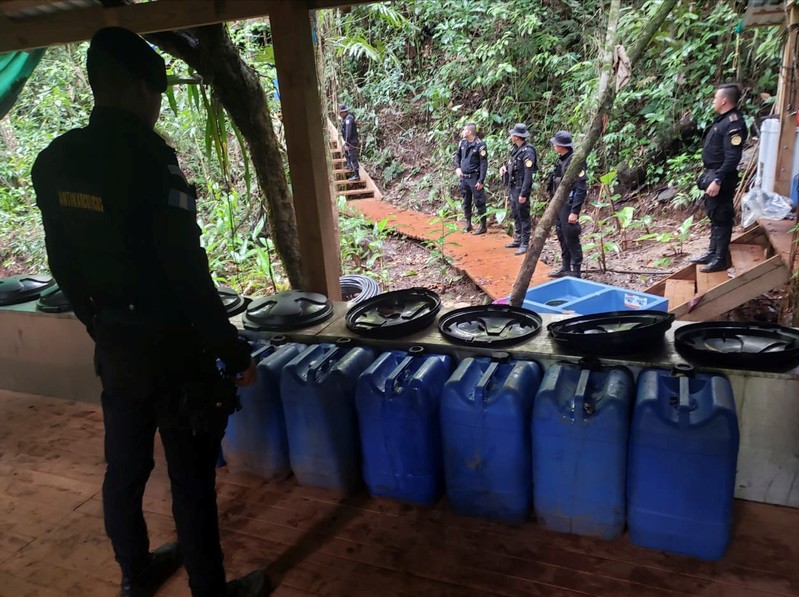
Agents of the Guatemalan National Civil Police (PNC) are seen during an operation to dismantle a coca processing lab in Izabal, Guatemala September 19, 2019. National Civil Police/Handout via REUTERS
September 19, 2019
GUATEMALA CITY (Reuters) – Guatemala must now consider itself a cocaine producing nation and not just a transit country for the powerful narcotic after authorities discovered new coca processing laboratories, the interior minister said.
Last year, Guatemala discovered plantations growing coca, along with a laboratory to process the leaf into cocaine. Until recently, the crop was almost exclusively cultivated in Colombia, Peru and Bolivia.
Interior Minister Enrique Degenhart said on Wednesday that in total three laboratories had now been detected.
“Following the discovery of these narco-laboratories and the different fields with the coca plants, Guatemala now becomes a cocaine producer and that puts Guatemala in a totally different situation with respect to regional security,” Degenhart added.
Guatemala, one of the poorest and most gang-ravaged countries in the Americas, has long been a major transit country for cocaine. Traffickers have achieved influence over political parties and in some cases territorial control.
Despite support from the United States and some success in interdicting drug shipments at sea, Guatemala has struggled to control the traffickers. Making cocaine locally could provide gangs with increased revenue.
The United States has long included Guatemala on a list of major drug transit or major illicit drug producing countries, however until recently it had only been known for plantations of the poppies used to make heroin and as a transit point for cocaine.
After three soldiers were killed earlier this month in what the government said was an ambush by drug traffickers, Guatemala imposed a state of emergency giving the military extra powers in the east of the country.
Reuters reported last year that drug cartels had begun cultivating fields in Central America as trials to explore saving transportation costs and reducing the risks of moving the product from Andean nations, which are much farther from the United States, the main market for narcotics.
Guatemala made its first official discovery of a field of coca plants in May 2018, following an initial find of a plot in Honduras the year earlier.
(Reporting by Sofia Menchu in Guatemala City; Writing by Anthony Esposito; Editing by Matthew Lewis)

